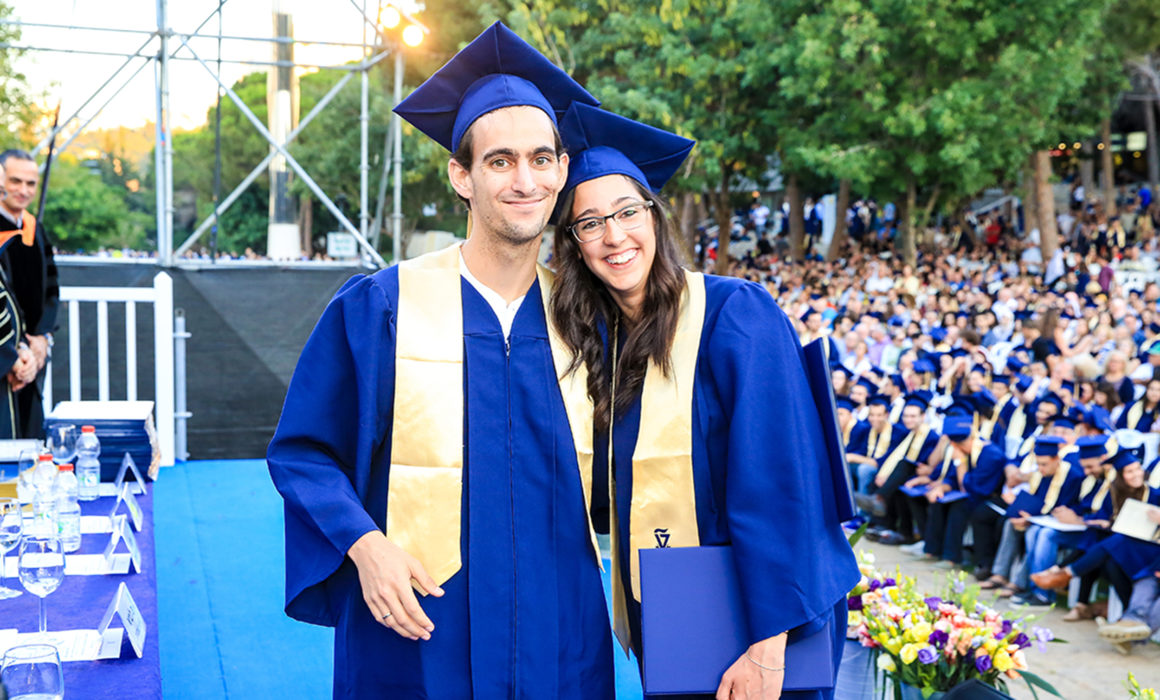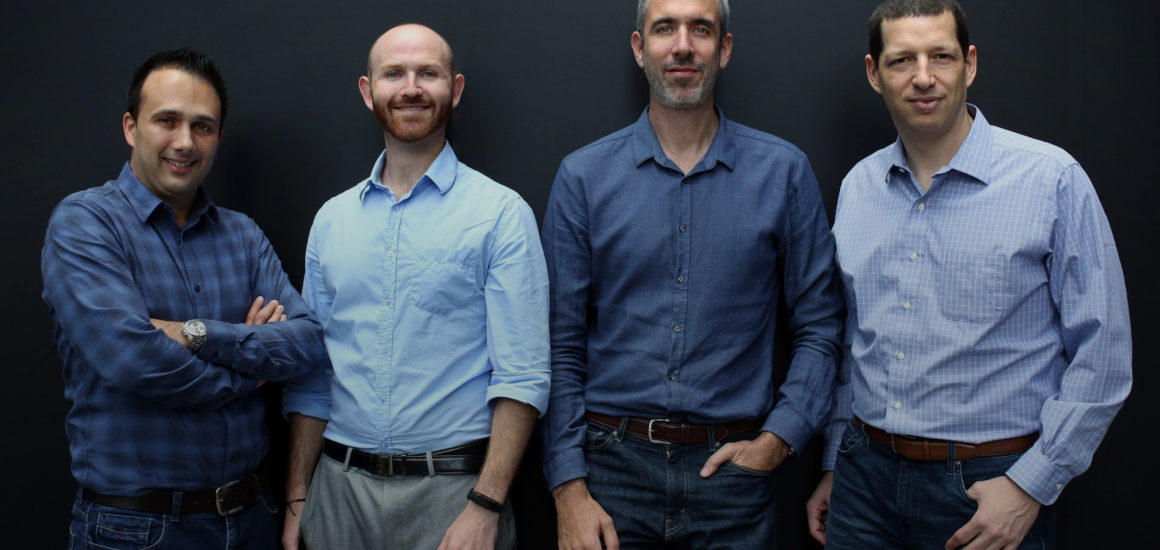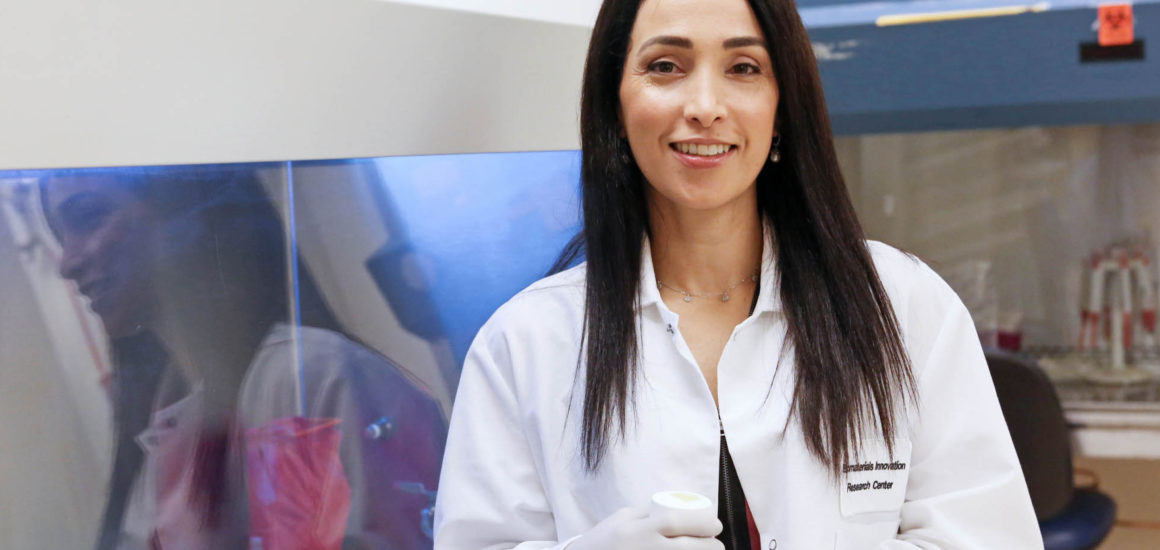Since its first class in 1924, the Technion has graduated over 111,000 alumni. Today, more than 70% are employed in the high-tech sectors that drive Israel’s economic growth, helping to build the country’s reputation as the Start-Up Nation. These brilliant alumni are working for multinational giants, shattering glass ceilings, moving stock markets, and creating technologies that benefit mankind.
Tal Wenderow B.S. ’01, Dr. Shady Hassan MD ’06, and Daniel Aronovich B.S. ’09, M.S. ’13, Ph.D. ’16 are tackling the coronavirus with voice analytics startup Vocalis Health. The grads are conducting research to identify a specific biomarker, or vocal fingerprint, unique to those infected with the novel coronavirus. They are working with the Israeli Ministry of Defense to collect voice and breath samples from COVID-19 patients and the general public for analyses using machine-learning technology. Vocalis’ proprietary algorithm will help Israel’s Ministry of Health flag patients carrying the virus and monitor their condition. Vocalis, profiled in a May 2020 article of The New York Times, hopes to have initial results by summer 2020.
The company is the product of the 2019 merger of Healthymize, a system to detect voice-affected diseases, and Beyond Verbal. Wenderow, president and CEO of Vocalis, led Beyond Verbal and helped the Technion and Rambam Health Care launch Corindus Vascular Robotics. Dr. Hassan, Vocalis’ chief operating and medical officer, earned his medical degree at the Technion and served as a physician before co-founding Healthymize in 2015. Aronovich, CTO, was a physicist at Microsoft and Intel.
Natalie Artzi B.S. ’97, Ph.D. ’04, Chemical Engineering, is an accomplished academic and emerging entrepreneur. She serves as the principal research scientist at the Institute for Medical Engineering and Science at MIT, assistant professor at Brigham and Women’s Hospital at Harvard Medical School, and associate member of the Broad Institute of Harvard and MIT. She also has launched BioDevek to develop her pioneering surgical and topical adhesives.
Professor Artzi’s research aims to integrate science, engineering, and medicine to rationally design personalized materials with applications for treating cancer and gastrointestinal diseases. In November 2019, she won Brigham and Women’s BRIght Futures Prize to advance an adhesive hydrogel that uses immuno-active nanoparticles to detect and kill brain cancer — a project inspired by a family friend diagnosed with brain cancer at age 13. As a winner of the 2019–20 MIT-Israel Zuckerman STEM Fund, she is collaborating with Technion Professor Haim Azhari of the Faculty of Biomedical Engineering on her research combating brain tumors. Prof. Artzi spoke at an American Technion Society alumni event last year.
Yoelle Maarek Ph.D. ’89, Computer Science, a world leader in web search, sports a CV that reads like a who’s who of brand-name tech companies. Currently, she is a vice president at Amazon, heading research for Alexa Shopping. Maarek started with IBM Research in the U.S. and Israel, where she held a number of positions, eventually leading the Search and Collaboration Department as an IBM Distinguished Engineer. In 2006, she made Google history as its first hire in Israel, where she opened and directed the Google Haifa Engineering Center. Her team notably launched the Google query service “Suggest.” Maarek then became vice president of research at Yahoo!, guiding the multinational giant’s research teams worldwide.
In 2014, Maarek made Forbes magazine’s “50 Most Powerful Women in Israel.” She has published more than 80 research articles, has served in various senior roles at leading academic research conferences, and is a member of the Technion Board of Governors.
Avigdor Willenz B.S., Electrical Engineering, lays claim to one of the biggest tech exits in Israel’s history with his 2000 sale of the communications chip company Galileo Technologies to Marvell Technology Group for $2.7 billion. A prolific angel investor and one of Israel’s most successful semiconductor entrepreneurs, Willenz served as CEO of Annapurna Labs, and sold the company to Amazon in 2015 for $370 million. The sale was Amazon’s first major investment in Israeli tech. A year later, Willenz sold Leaba Semiconductor to Cisco, and in December 2019, he sold AI chip-maker Habana Labs to Intel for $2 billion.
Willenz has a two-pronged investment strategy: He invests in companies brought to him by other entrepreneurs, while also launching startups based on technologies he wants to bring
to fruition.


